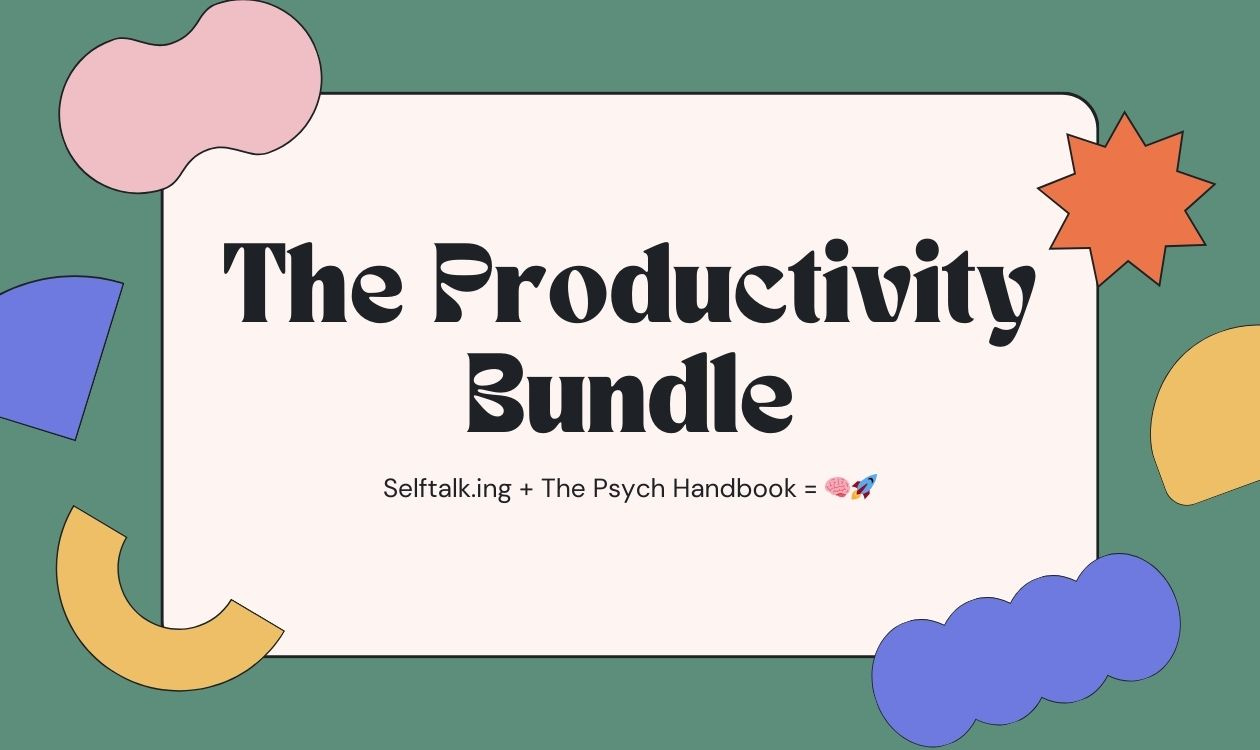Reader,
We are going to learn about the Jevons Paradox today!
What is it?
From a psychological perspective, Jevons Paradox refers to the phenomenon where an increase in the efficiency of resource usage paradoxically leads to an overall increase in resource consumption rather than a decrease.

Imagine a person who switches from a gas-guzzling car to a more fuel-efficient one.
Initially, they may feel good about reducing their fuel consumption and carbon footprint.
However, the newfound efficiency might encourage them to drive more frequently or take longer trips, ultimately leading to them consuming more fuel than before.
This happens because the perceived cost of using the resource decreases, prompting individuals to use it more liberally.
Introducing “The Productivity Bundle” ✨
Dive into Psychology with The Psych Handbook & Crush Your Goals with Selftalk.ing.
What do I need to know?
Jevons Paradox reminds us of the intricate relationship between efficiency improvements, human behavior, and resource consumption.
By acknowledging these complexities and adopting holistic approaches to sustainability, we can work towards more effective and enduring solutions to environmental challenges.
Increased Resource Consumption: Jevons Paradox highlights how improvements in efficiency can lead to an overall increase in resource consumption rather than a decrease. This has significant implications for environmental sustainability, as it means that even with technological advancements aimed at reducing resource usage, overall consumption may continue to rise.
Behavioral Response: The paradox emphasizes the role of human behavior in resource consumption. When the perceived cost of using a resource decreases due to efficiency improvements, individuals may respond by using the resource more frequently or extravagantly. This underscores the importance of understanding and addressing human behavior in sustainability efforts.
Policy Implications: Simply relying on technological advancements to improve efficiency may not be sufficient to achieve sustainability goals. Policymakers need to consider broader strategies that account for the complex interplay between technology, behavior, and resource consumption.
Holistic Solutions: Solutions should not only focus on improving efficiency but also address underlying consumption patterns and promote behavior change.
Source:
https://en.wikipedia.org/wiki/Jevons_paradox



